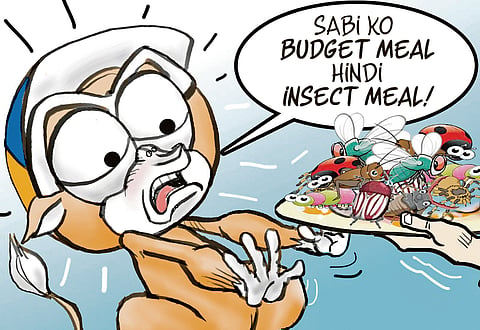
- NEWS
- the EDIT
- COMMENTARY
- BUSINESS
- LIFE
- SHOW
- ACTION
- GLOBAL GOALS
- SNAPS
- DYARYO TIRADA
- MORE

A Danish father and daughter have switched from pig raising to livestock feed manufacturing.
Jane Lind Sam and her father, Carsten Lind Pedersen, opened in December their 22,000-square-meter factory, the biggest in northern Europe offering an alternative to imported soybean.
Lind Sam, co-owner and chief operations officer, said soy products for livestock feed emitted seven million tons of planet-heating carbon dioxide, accounting for 60 percent of the total CO2 emissions from Danish agriculture, Agence France-Presse reports.
Thus, they ventured into insect meal production.
The factory called Enorm breeds millions of black flies inside plastic cages, where they lay hundreds of thousands of eggs every day throughout their 10-day lifespan. When the eggs turn into maggots after 12 days, the larvae are fed agricultural waste for 40 to 50 days before the insects are processed into flour feed.
Enorm’s market is still very small and the owners are mum about the buyers of their insect feed for pigs, poultry, fish and pets.
Another farm in Uttaradit, Thailand offers an alternative to traditional meat. Its Italian immigrant owner, Emilio Malucchi, breeds about 9,000 snakes that are butchered and fed to fish.
Malucchi told AFP that he eats the pythons as there is still little interest in snake meat that has a chicken-like texture and is low in saturated fat.
“The problem is that there is no market for python flesh. We need to educate people about its possibilities,” said Malucchi, according to AFP.
Other commercial python farmers like Malucchi also complain of strict processing standards by food regulators.
Patrick Aust, director of the African Institute of Applied Herpetology and one of the scientists involved in the study of nearly 5,000 reticulated and Burmese pythons at two commercial farms in Vietnam and Thailand, said snake meat is versatile.
“You can barbecue it or eat it in curries and stews. I like to fry it in garlic butter until it’s nice and crispy,” he said.
